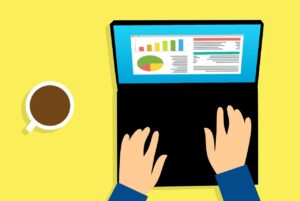 This week’s top story: Smart Money podcast on using AI to budget and save and debit vs. credit card pros and cons. In other news: What the 2024 Social Security COLA could mean for your retirement, what parents of college students need to know about new FAFSA, and first-time home buyer affordability report.
This week’s top story: Smart Money podcast on using AI to budget and save and debit vs. credit card pros and cons. In other news: What the 2024 Social Security COLA could mean for your retirement, what parents of college students need to know about new FAFSA, and first-time home buyer affordability report.
Smart Money Podcast: Using AI to Budget and Save and Debit vs. Credit Card Pros and Cons
Learn how to use AI for help with budgeting and saving money, then learn whether credit cards or debit cards are safer.
What the 2024 Social Security COLA Could Mean for Your Retirement
Social Security benefit amounts adjust for inflation every year; here’s how to make the most of those changes for 2024.
New FAFSA: What Parents of College Students Need to Know
The new 2024-25 FAFSA will have a greater impact on divorced parents, undocumented parents and those with multiple kids in school.
First-Time Home Buyer Affordability Report — Q3 2023
High mortgage rates sidelined home buyers and sellers alike in the third quarter, making the already lofty financial goal of homeownership potentially unattainable for would-be first-timers.
 This week’s top story: Smart Money podcast on spring-cleaning, and paying off different types of debt. In other news: What could happen if Congress doesn’t make changes to Social Security by 2035, mortgage could be harder to get in a credit-tightening era, and 4 tips for a meaningful and successful retirement.
This week’s top story: Smart Money podcast on spring-cleaning, and paying off different types of debt. In other news: What could happen if Congress doesn’t make changes to Social Security by 2035, mortgage could be harder to get in a credit-tightening era, and 4 tips for a meaningful and successful retirement.